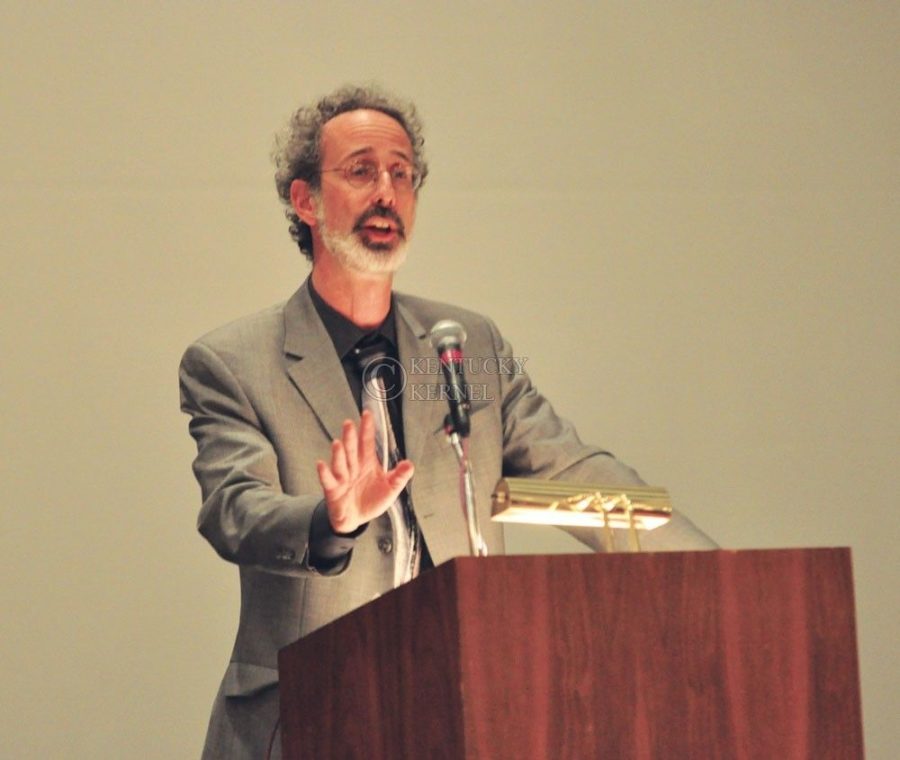Scientist talks global water crisis
November 4, 2011
This week, the world population grew above 7 billion.
Of that 7 billion, 1 billion people go without water and 40 percent of the world has unclean water, said Peter Gleick, co-founder and president of Pacific Institute for Studies in Development, Environment and Security.
Many people believe having clean water is a human right. Gleick is one who believes strongly in having clean water, and he gave a speech Thursday, “New Thinking for Water in the 21st Century,” for the first-ever UK Environmental and Sustainability Summit.
The environmental speaker series features nationally recognized scholars who will talk about global challenges regarding sustainability.
Gleick is a MacArthur winning scientist who specializes in the environment and an internationally recognized expert on water.
His speech focused on the fresh water crisis in the world. With proper changes, the water crisis can be fixed, he said.
However, during his speech Gleick implied these changes need to be made sooner rather than later.
“Current use of water is out of balance and unsustainable,” he said.
Throughout the speech, Gleick explained how important water is to the human race. Not only do people need water to live and grow food, but water is also essential to making a variety of materials, such as steel.
He broke down the history of water usage into three eras of water.
The first era was during ancient times, when humans first began harnessing water. The second started around the 1800s and only recently ended. In this era, humans began polluting the water supply while they became more dependent on it.
Gleick is positive about the future of water. He said the third era of water has just begun. In this era, humanity has taken a more active role in the environment and attempts to be more conservative. Gleick believes that even with the threat of overpopulation, governments are attempting to do something about the crisis.
“In the United States we use less water today for everything than we did 30 years ago,” he said.
Gleick was brought to UK via the Tracy Farmer Institute for Sustainability and the Environment, and the Environmental and Natural Resources Initiative. The event was also the second annual research showcase and for the 2011 UK Sustainability Awards.
































































































































































